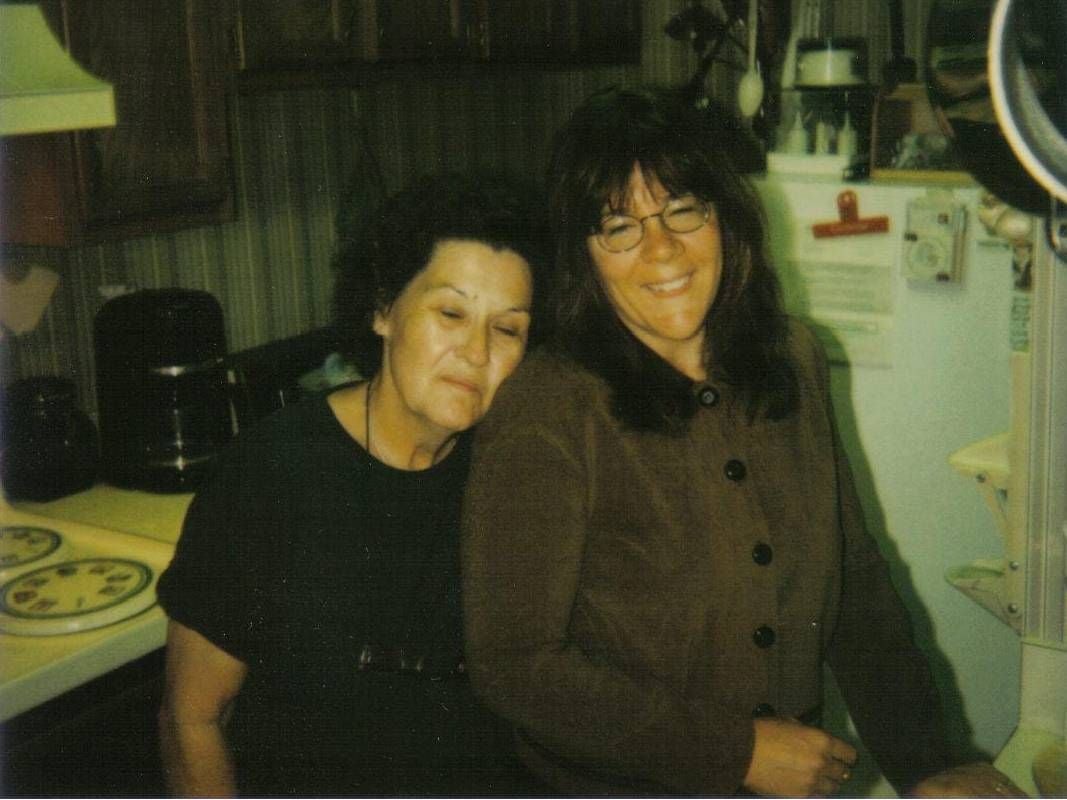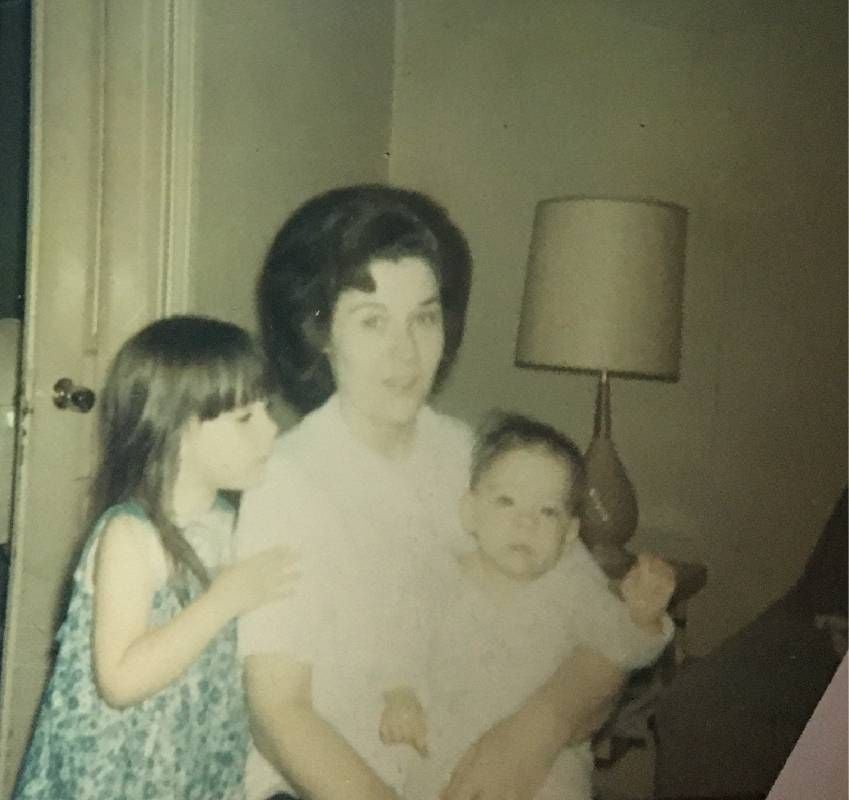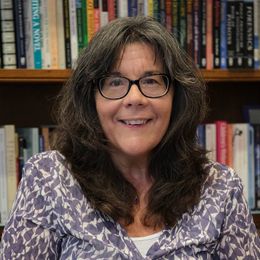Dedication: Living My Mother's Dream
As my mom and I both faced serious illnesses, I saw the power that comes from facing hard things together — and wrote a novel
My mom harbored a secret dream. She wanted to be a writer and signed up for a creative writing class at the local library. When my dad heard about it, he went in her place, leaving her at home to take care of me and my two sisters.

Mom was a nurse and used her hands to bandage burns and administer medicine, not type sentences. But her love of words was clear when she read Laura Ingalls Wilder's "Little House" series aloud to my sisters and me. Her voice was like warm butter on toast as she recalled Laura's adventures in the big woods.
Mom kept a routine designed to lend a sense of normalcy to horrible circumstances.
Mom nurtured my father's dream of writing, working double shifts and giving him time to create. She filled her busy days with work, caring for us and cooking wonderful meals. Dad accepted her gift, worked on his writing and carried on an 11-year affair with another writer.
Dad went on to publish detective fiction, but they divorced before the books were published. My heart ached as I read the dedication page of his first book and my mother's name was nowhere to be found.
The Power of Spoken Words
For my mom, it was spoken words that had power. The first story she told me was of my birth. I was born prematurely in 1965, and weighed less than three pounds. I was taken away and placed in an incubator. Mom kept vigil at my bedside, watching me try to breathe, willing me to gain weight. It was a story of struggle, but also triumph.
"I always knew you would make it," she said. So I carried that image of her by my incubator, her watchful presence, with me every day as a bulwark against life's challenges.
Mom and I faced things together. When I was diagnosed with a mild case of cerebral palsy, she made sure I got to an orthopedic surgeon who performed tendon release surgery allowing me to walk. When she was suffering from depression, she called me to pick up her medicine.
Like my parents, I had an interest in writing, which I pursued first as a freelance writer and later as a poet, essayist, short story writer, and, ultimately, a novelist. Just shy of my 50th birthday, I was working on a novel that focused on a mother's love and advocacy for her young son who has past life memories of serving in Vietnam.
I'd heard a story about young children with startling memories of past life experiences on National Public Radio. I thought about their parents, gleefully welcoming their children, ready to keep them safe, ready to help them discover and cultivate their talents, only to find them carrying the heavy weight of sad memories.

My mother must have felt the same weight when she thought of the challenges that cerebral palsy would present to me.
The work was challenging, but life was even harder. After years of roving joint pain, I was diagnosed with rheumatoid arthritis. Within weeks my mother was diagnosed with the same kind of lung cancer that took her younger sister.
Mom kept a routine designed to lend a sense of normalcy to horrible circumstances. We sat in her family room and escaped into the comfort of retro television shows like "The Waltons" and "Little House on the Prairie." Their problems were small, a birthing calf, and a fire at the mill. Ours were large.
We talked about small things, the weather and her grandkids. My husband told his usual bad jokes, never more welcomed. I brought her cake and caramel donuts to tempt her to eat. Sometimes, we sat together in silence, in witness.
When I wasn't working, I was with my Mom taking in her warmth and courage, trying not to imagine the gaping hole her absence would leave.
I couldn't escape the pain of the rheumatoid arthritis, the aching joints that spanned the length of my body. In a bid for escape, I turned to the novel. I didn't see what fed my work then. I was overwhelmed by the challenges in front of me and tackled the story sentence by sentence, as if chipping away at a mountain with a pair of nail scissors.
It took me years to see that this novel was an exploration of what you do when your life or the life of someone you love does not turn out as expected. It was about standing up for those you love and the courage it takes to walk into unknown situations. These were lessons my mother and I had learned together.
Creating a World With Writing
Writing was cathartic. It was both an escape and a way to create something new in a world where everything was falling apart.
Each day I sat down to the puzzle of the narrative and the puzzle of my life. Would Eve Sloan find answers to help her son Charlie grapple with his disturbing memories? Would we find my mother the right treatment to forestall the spread of her cancer? How would Thomas Boone survive a personal loss and the terrors of war? Would the experience change him? How could I manage the challenging and unpredictable condition that I had not expected to have? How would I mesh the two story lines as the novel ends for the greatest emotional impact? Would my physical and emotional pain make me unable to see the hope inherent in every struggle?
My mother gave me so much; life, mobility, a sense of destiny and the courage to fight on.
Most of all, I saw the power that comes from facing the hard things together, of not letting fear rob us of precious time, and of turning pain into art.
When I wasn't working, I was with my Mom taking in her warmth and courage, trying not to imagine the gaping hole her absence would leave.
The book was a world I created and changed, which made it manageable in a way that life was not. As hard as the subject matter was to write, it was easier to handle than the real world. The work saved me from despair and became a fictional stage on which to explore love, loss and courage.
Time brought change. I lost my mother to lung cancer in July of 2015. I found medicines that help with my rheumatoid arthritis, along with exercise and physical therapy. I continued to work on the book, working with a mentor, writing groups and an editor to make the story the best version of itself. Though she wasn't present, I could feel my mother cheering me on.
I believed in the book with the same fervor with which my mother believed I would survive. It was a story of bravery, love and integrity in the face of unforeseen challenges. While the past life premise was unique, these themes are lived out by millions of people every day.
My mother gave me so much; life, mobility, a sense of destiny and the courage to fight on. Now it was my turn. "Beware the Tall Grass" hit bookshelves March 15, 2024. The dedication reads: "To Liz, who never stopped believing."


